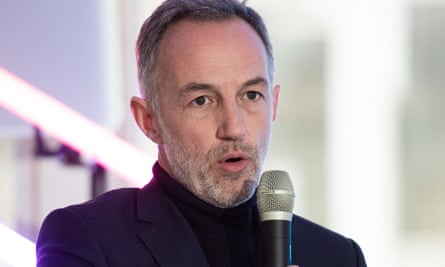Paris authorities have proposed to combat the population drain from the French capital by pushing for higher taxes on second-home owners and introducing more affordable social housing for working- and middle-class families.
The city’s population has dropped by more than 123,000 in the last decade, with many leaving in search of cheaper housing and green spaces, according to official figures. France’s statistics agency, Insee, says Paris is losing about 12,400 people a year and the city population – now at about 2.1 million – is at its lowest for 20 years.
The Covid pandemic and lockdowns are seen as a factor but the cost of housing is a key motivation: the average a square metre is about €10,000. Many of those who have left the capital have moved further out in the Île-de-France region – that includes Paris – whose population is 12.4 million and where property and rents are more affordable.
“Departures from the capital are motivated in particular by the high cost of housing, the reduced supply of large housing for family and the search for a different living environment,” Insee reported.
While attracting young professionals in the mould of the title character of the Netflix romantic comedy Emily in Paris, the capital, one of the most densely populated in the world, has been accused of ignoring its own population.
With limited space to build new homes, the deputy mayor, Emmanuel Grégoire, says the only way for the city authorities and government to take proactive measures include: buying up buildings and forcing the owners of large offices to set aside space for controlled rent public housing; strict controls on holiday rentals; and increasing taxes on holiday homes – a measure it has so far been reluctant to introduce.

Paris already requires Airbnb owners to register their property and limits the number of nights they can rent to tourists. “People using property for tourism and second homes aggravate the pressure on the available housing. We don’t want apartments dedicated to tourist rentals. We understand it can be a complementary income for people but the main role of an apartment should be as housing for local people,” Grégoire explained.
“Paris welcomes tourists but we prefer that when visitors come here they stay in hotels not apartments. We would like the government to introduce stricter rules. It would be abhorrent to stop foreigners buying property in Paris. What we want is Paris full of people who live in Paris and taxation is the way to do this and put off investors.
“We have to discourage people who say, ‘I have watched Emily in Paris I’ll buy a pied-à-terre there’, with a secondary residence surtax of 60%. Emily in Paris is great for stimulating tourism in Paris but we want people living here as permanent residents. If they want to visit they can stay with friends or in hotels.”
In last year’s presidential election, the Paris mayor, Anne Hidalgo, accused the government of hitting the middle classes by abolishing the taxe d’habitation, a local council tax, the only means local authorities had to raise money. Second-home owners are still required to pay this tax and Grégoire says city hall wants the government to impose a further 60% increase on another tax paid by property owners.
In November, city hall, which aims to have 40% public housing by 2035, presented a plan – expected to be passed in April – to adapt existing buildings to produce thousands of low rent and affordable housing by converting offices, garages, hotels and imposing social housing in new construction projects or major renovations.
Despite the city’s huge debt of €8bn (£7bn) – compared with €1bn in 2001 – he says the money will be found because letting market forces control the availability of property in the capital would “destroy the city”, leaving it full of offices, holiday homes and the very wealthy.
“We want a city where those who sweep the streets and those who care for people, the nurses and home helps, can afford to live here,” Grégoire said.
Ian Brossat, responsible for housing at city hall, said it was determined to counteract property speculation. “We want to protect as many Parisians as possible from real estate speculation,” he told Le Monde. “And to ensure that those who work in Paris can live there since the city loses residents every year because they can no longer afford to stay.”
Nelly Garnier, an opposition Paris councillor, told BFMTV that city hall was “in denial” about the real problems.
“I talk to Parisians and they are disgusted … Paris was always the place you wanted to come to so you could live your dreams, now it’s a confused city. We are angry with Anne Hidalgo and her green [coalition] allies turning it into a city people want to flee. They have degraded life in Paris.”
Grégoire says a falling population should not be seen “as something good or bad” and that the causes need examining. The ideal population is about 2.1 million. “It’s a complex situation and there are lots of factors we have to understand to know how we can react and correct what is happening. It would be wrong to say people are leaving because Paris is ugly and dirty.”

 1 year ago
83
1 year ago
83










 English (US)
English (US)